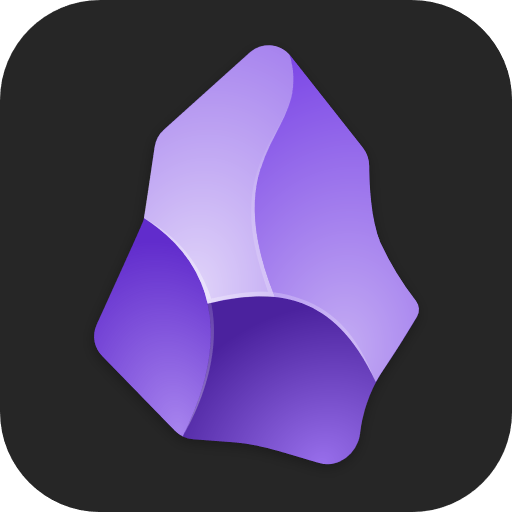I was really hooked by Obsidian right from the start. It’s one of these things, where you feel the potential electrifying your fingertips. My first few notes were clumsy, as expected, but I also expected it to get better over time. I read something about Evergreen Notes and tried to apply those principles. I still sorted everything into neat folders though, some of which had sub-folders and it felt structured, but it felt like I wasn’t getting the most out of Obsidian, not even a fraction. The process of sorting my notes into folders and searching for notes within those folders also became a tedium and I started forgetting about notes, just because I couldn’t find where I put them.
Once I watched Nicole’s video on the LATCH method, something clicked. I copied her format and adapted it for my use. I established parent-child-links between my notes, created index notes listing child notes via Dataview and today… today I finally got rid of all folders (except one diary folder). They didn’t give my vault good structure, but actually obfuscated information, and once I used LATCH they were obsolete.
What are your thoughts on and experiences with folders and linkage?
Do you have a method of organizing, that you want to share?
I would love to hear your thoughts.


I went through multiple steps of using and not using folders. In the end a had a moment where I asked myself a question. What is a page? What should it contain and how big it should be? Then it struck me and more questions popped up. Why do I need one way of linking when I link a page, but different way when I want to link a specific part? The answer is that I don’t need Obsidian. I need an outliner. An infinite fractal document which enables me to link specific parts of its tree. So I switched to Tana and then to Workflowy.
My method of organizing “pages” is quite simple. I use alphabet. It’s surprising to me that I don’t see it being recommended as a default option online. Instead I see Johnny Decimal, PARA, LATCH and other names just to sell an online course. Now what is a page in my system. It’s a search keyword and I associate with the information.
Next step that arises sooner than later is to reduce number of pages visible. I do this by progressively grouping pages into “folders” which in case of an outliner means nesting it under each other. For example I might discover a cool fact about Prague. I have a lot of pages that start with P so I group them. Then I notice that a lot pages start with Pr so I group them again and then I create Prague node.
Searching is simple as well. If I search for my friend John I might click through J > Jo > John but it is logical in my eyes and three levels are not that common anyway.
I’ve never had a paper-drawer notecard system, but one is described in the book The Mixed-Up Files of Ms Basil E Frankweiler and I’ve always sort of aspired to that. The way you organize alphabetically has those kinds of paper file / encyclopedia vibes to me!
That sounds overly complicated to simulate, what you already have: a search function. (unless you are talking paperback, but then why subscribe to ObsidianMD :D)
For the ideas
Can you elaborate?
This community has a lot of good ideas. The most important one is the need for permanent notes. This allows me to forget stuff because I know I’ll find it in a shape that is useful for me.
Then there are ideas on how to do it. Zettelkasten, PARA, Johnny Decimal etc.
And finally what to write for example habit trackers, daily notes, ledgers etc.
I like looking at other people notes because it gives me ideas on how to improve my own notes. I’m not in a stage where I would blindly copy anything, but if something catches my eye I think how to integrate it into my notes. And that’s the value I get from this community.